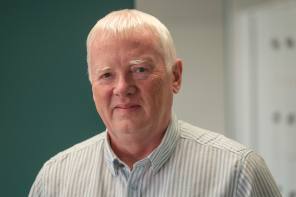

In 2013, the government introduced a high-income child benefit tax charge, which means for couples where one partner earns £60,000 per year or more, a tax charge is incurred which wipes out the value of the child benefit.
According to Royal London’s analysis, there are approximately 50,000 mothers in families with a child under five years old who have completely opted-out of receiving child benefit, having previously received it.
In addition, an estimated 160,000 women have started a family since 2013 and have decided not to claim child benefit.
The provider said some of these mothers will be in paid work and so do not need the National Insurance credit, but even if only 30 per cent of these women are not in paid work, around 63,000 will be losing out on credits which would boost their state pension.
Helen Morrissey, personal finance specialist at Royal London, said opting out of child benefits "is doing permanent damage" to these women state pension prospects.
She said: "It is outrageous that in the anniversary of women winning the right to vote, the government is overseeing a state pension system which penalises women for having children.
"The government needs to make sure that all mothers claim their national insurance credits, and to allow backdated claims. Otherwise, the cause of women’s pension equality will be set back a generation."
The total amount in future pension rights lost since 2013 is estimated to exceed £1bn, Royal London concluded.
Some mothers will have lost over £23,000 in state pension rights since 2013 because of the tax changes, and are not allowed to make a backdated claim for missing credits if more than three months have passed, the provider added.
Child benefit recipients - usually mothers - with a child under 12 get a National Insurance credit towards their state pension. This means even if they are not in paid work, they are still treated as having contributed when it comes to claiming their retirement benefits.
Figures published today (28 February) by HM Revenue & Customs showed the number of families receiving child benefit was 7.38m in 2017, compared with 7.92m in 2012, just before the rules changed.
According to Paul Gibson, managing director of Granite Financial Planning, the child benefit tax charge “is grossly unfair” and is “another piece of sloppy legislation”.
He said: “We have generally advised clients to either take the child benefit payment and pay the subsequent tax charge or opt to stop receiving it but get it confirmed in writing that credit will still be given towards state pension entitlement.”
This is not the first time Royal London addresses the new child benefit tax charge.
A year ago, in a similar research, the company called the government to change the rules, as the number were already showing state pension losses.
In September, it published an analysis which showed that families who increase their pension contributions will lower their income for purposes of the high-income child benefit charge.
maria.espadinha@ft.com



